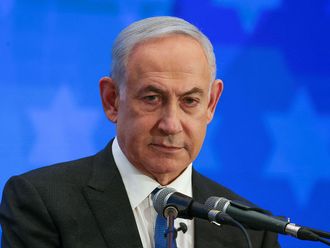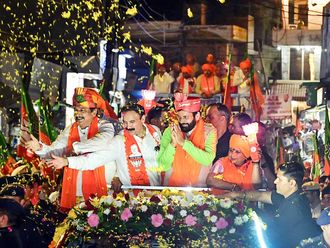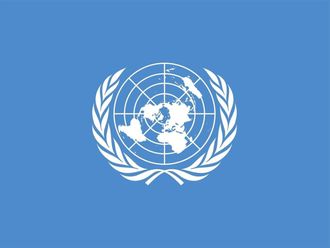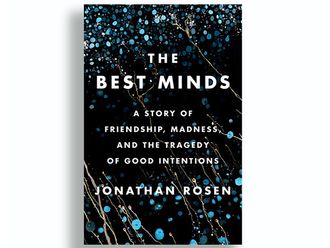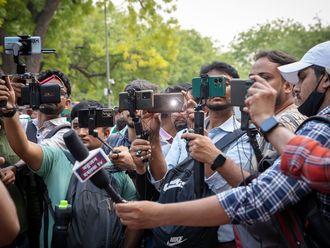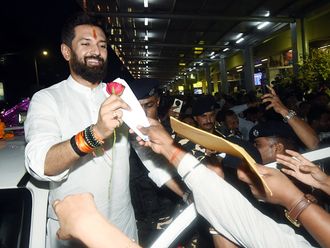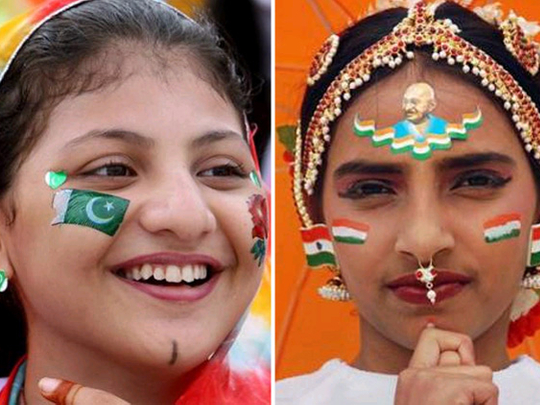
India and Pakistan are becoming increasingly distant from each other. In any case, they have never been normal neighbours. But after the attack on Mumbai some 15 months ago, both are intentionally moving apart. Détente is no longer on the agenda. Recent talks between foreign secretaries of the two countries, largely a result of international pressure, have shown that they have no interest in normalising relations.
What has suffered most is person-to-person contact. New Delhi and Islamabad have always paid lip service to the concept. Now they are doing everything possible to prevent it, slashing the number of visas they issue and reducing trade through Wagah and Kashmir.
An academic conference in Delhi was abandoned because India did not grant visas to leading intellectuals from Pakistan. This was New Delhi's retort to the denial of visas by Islamabad to India's top professors. A couple from Karachi in the banking field rang me to complain that their application for a visa to India was rejected after months of consideration.
I know the credentials of academicians who were to visit India or Pakistan. They are at the top of their profession. By no stretch of imagination are they are connected with terrorists or their rhetoric. The only inference I can draw is that the two governments, or bureaucrats on both sides, are determined to see that even limited contact becomes rare. Yet these very bureaucrats, after retirement, will constitute Track II and meet outside their country at the expense of some western power and criticise their governments for ruining mutual relations.
Air India wound up last week even their depleted offices at Lahore and Karachi. When asked, the airlines said it was "an economic measure." If any loss the airline bears is justified it is the one suffered as a result of the offices in Lahore and Karachi. Were Pakistan International Airlines to stop its reduced flights between Delhi and Lahore and Karachi the only connection between the two countries would be through the exasperating Samjhotha Express and the seemingly endless journey by bus. What an average person goes through when travelling by train or bus is nothing less than hell. Still, both governments say that person-to-person contact must improve. How? Whatever is there, it is because of the people themselves.
People, not politicians
I recall the conversation I had with the late Benazir Bhutto some years ago. I was visiting Lahore then and she was leading the movement for Restoration of Democracy. She told me that the governments in the two countries would never be able to normalise relations but if ever it were to occur, it would be because of the people. Nawaz Sharif, Pakistan's prime minister at that time, was equally emphatic about the role of people. Yet I have wondered why he does not say anything positive about relations between the two countries.
My guess is that the Pakistan establishment, including the military, is against any kind of rapprochement with India because they have developed a vested interest in the status quo. This is probably the reason why President Asif Ali Zardari, an outsider in the eyes of the establishment, has grown silent after expressing pro-India sentiments in public. In India, the hawks, mostly retired foreign service hands, are so vociferous in their criticism — they are encouraged by leading TV networks — that the meagre efforts the government makes are hopeless.
It is an open secret that Prime Minister Manmohan Singh wants to settle all differences between the two countries once and for all. Former national security adviser Mayankote Kelath Narayanan always worked against the prime minister in this regard. Present National Secretary Adviser Shiv Shankar Menon, who has served in Pakistan as Indian's High Commissioner, believes in conciliation. But he too is afraid to annoy the Indian establishment, which is largely a caucus of retired civil and military officials.
I fear that the atmosphere of deep estrangement created after Pakistan crowded India out of playing any role in Afghanistan may sour relations still further. Islamabad's support for Gulbuddin Hekmatyar, who led the resistance against the Soviet Union in Afghanistan in the early eighties, is telling upon relations. He is regarded as being anti-India.
Now that the US has recognised the "strategic" interests of Pakistan in Afghanistan, it is time for New Delhi to talk directly to Islamabad. That Afghanistan is an independent country and should remain so is not a matter of negotiation. But India and Pakistan should discuss the increased pressure the Taliban will put on Afghanistan once the US forces withdraw.
If the Taliban were able to dominate Pakistan, scores of people could flee into India. This is a scary scenario. New Delhi and Islamabad have to sit across the table to bury the hatchet. When Singh and Prime Minister Yousuf Reza Gilani meet in April, they should ponder concrete steps to increase person-to-person contact.
(Kuldip Nayar is a former Indian High Commissioner to the United Kingdom and a former Rajya Sabha member.)


